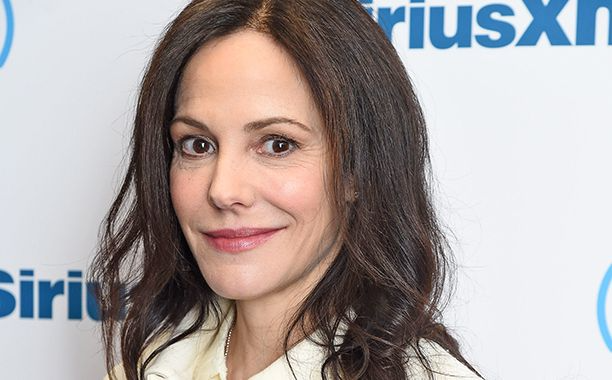
Early Life and Theatrical Roots
Mary-Louise Parker was born on August 2, 1964, in Fort Jackson, South Carolina, into a family with a strong military background. Her father, a judge in the U.S. Army, moved the family frequently throughout her childhood. This itinerant upbringing instilled in her a certain emotional resilience that would later become a hallmark of her performances.
Even as a child, Parker was drawn to storytelling. Her earliest interests were literary—reading, writing, and introspection. She attended the North Carolina School of the Arts, where she began to seriously pursue acting. There, she developed a style rooted in authenticity and emotional vulnerability, traits that would eventually define her screen and stage work.
Breakout Role in Fried Green Tomatoes
While Parker had already made her mark on Broadway and appeared in a few television and film roles in the late 1980s, it was her portrayal of Ruth Jamison in 1991’s Fried Green Tomatoes that brought her critical acclaim and public recognition. The film, based on Fannie Flagg’s novel, tells the story of female friendship, identity, and quiet rebellion in the American South.
Parker’s Ruth is soft-spoken yet strong, graceful but determined. Her chemistry with Mary Stuart Masterson (who played Idgie Threadgoode) brought an undeniable emotional depth to the screen. Together, they created a nuanced portrait of women carving out space for themselves in a rigid world. While much public conversation skirted the romantic subtext of Ruth and Idgie’s relationship, Parker embraced the emotional intensity and quiet love of the role.
Her performance was widely praised for its understated power, capturing the pain of an abusive marriage, the joy of newfound freedom, and the courage to live an unconventional life. Fried Green Tomatoes became a cultural touchstone and launched Parker into a new tier of visibility as a serious actress.
Career After Fried Green Tomatoes

Mary-Louise Parker refused to be typecast. Throughout the 1990s and 2000s, she chose projects that reflected her range—from indie dramas to Broadway plays to high-profile TV roles. She won a Tony Award in 2001 for her performance in Edward Albee’s Proof, showcasing her capacity to convey emotional fragility and intellectual ferocity in equal measure.
Perhaps her most iconic television role came in 2005 with Showtime’s Weeds, where she portrayed Nancy Botwin, a suburban widow who turns to marijuana dealing to support her family. The series ran for eight seasons and earned Parker a Golden Globe Award for Best Actress. The role was daring, morally complex, and at times outrageous—yet Parker’s grounded performance made Nancy believable, even when the plot veered into dark comedy and satire.
In addition to Weeds, Parker has appeared in acclaimed projects like The West Wing, Angels in America (for which she won an Emmy), and The Spiderwick Chronicles. Her ability to move between genres—drama, comedy, fantasy, and political thrillers—speaks to her enduring adaptability.
A Distinctive Presence in Theater
While television and film brought Parker mainstream fame, she has always maintained a strong connection to the stage. Her work in plays such as Prelude to a Kiss, How I Learned to Drive, Hedda Gabler, and Heisenberg further cements her status as a serious dramatic actress. Her stage work is marked by a raw vulnerability that audiences and critics alike find captivating.
She is known for taking her time with projects, selecting roles that speak to her sensibilities rather than chasing popularity. This deliberate pacing has kept her career from ever feeling formulaic or commercialized.
Personal Life, Advocacy, and Memoir
Off-screen, Mary-Louise Parker is known for her introspective and private demeanor. She has two children: a son with actor Billy Crudup and a daughter adopted from Ethiopia. While her personal relationships have sometimes drawn media attention—especially her public breakup with Crudup while she was pregnant—Parker has maintained grace under scrutiny.
In 2015, she published a memoir titled Dear Mr. You, composed as a series of letters to various men who influenced her life—some famous, some anonymous, some deeply personal. The book is candid, lyrical, and full of insight, confirming her prowess not just as an actress, but as a writer. It received strong critical reviews and showcased a quieter side of celebrity: introspective, literary, and emotionally intelligent.
Parker is also an advocate for social justice and women’s rights. She supports charities that focus on education, healthcare, and equity for underprivileged women and children. Her approach to advocacy is quiet but consistent—reflecting her broader philosophy of living deliberately and ethically.
Legacy and Present Life
Today, Mary-Louise Parker continues to act, write, and inspire. She balances professional work with motherhood and artistic curiosity. Her recent performances remain as impactful as ever, proving that she is not just a survivor in Hollywood but a genuine artist in a world often driven by fleeting fame.
Her legacy is multifaceted: a risk-taker who embraces flawed and complex roles, a literary thinker with the heart of a poet, and a woman who has managed to thrive in both artistic and personal realms without compromising her values.
Parker has also mentored younger actresses and remains respected for her thoughtful insights into the craft of acting. She often speaks about the importance of choosing meaningful work, of staying curious, and of remembering that an actor’s job is to tell the truth—something she has done throughout her storied career.
Conclusion: A Career of Quiet Brilliance
Mary-Louise Parker’s journey is one of quiet brilliance. Never the loudest or the flashiest, she has nonetheless become one of the most respected performers of her generation. From Fried Green Tomatoes to Weeds, from Broadway to bestselling memoirs, she has shown us that strength can be graceful, and defiance can be soft-spoken.
In a world obsessed with overnight success, Parker stands as a testament to longevity, artistry, and the power of choosing one’s own path. Her legacy is still unfolding—but it’s already rich, deep, and full of meaning.
